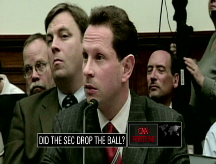What Madoff could learn from Ponzi
If Bernard Madoff is angling for a plea deal, he should study the case of Charles Ponzi, who faced round after round of prosecution.
(Fortune) -- Bernard Madoff seems once again to be borrowing from the Charles Ponzi playbook, in this case the final chapter. If so, he should be sure to read the fine print.
Federal prosecutors acknowledged in court documents this week that Madoff's lawyer is "engaging in discussions concerning a possible disposition of this case." That's typically lawyer code for either persuading the government to drop the charges -- not a chance -- or cutting a plea deal in the hope that Madoff might someday leave prison.
As it happens, that's just what Charles Ponzi did after it was discovered that his money-making machine was all chrome and no engine. In November 1920, three months after his double-your-money "business" was exposed as a fraud in which early investors were paid with money from later ones, Ponzi stepped into federal court in Boston. He was his usual dapper self, draping his diminutive frame in a brown, double-breasted suit, with a silk pocket handkerchief. The mood was better captured by his beloved wife, Rose, dressed as if for a funeral in a black dress, black hat and gray squirrel wrap.
In two federal indictments, Ponzi was charged with 86 counts of using the mails to defraud the public. It was an ironic charge -- Ponzi's only use of the mails was to send postcards to his "investors," telling them their notes were due and to come get their money, which until the very end he happily paid.
Ponzi believed that he could beat the charges, but Rose feared he would be sent away from her for 20 or more years. She begged him to plead guilty and accept a five-year prison term. "What difference does it make what the world thinks, as long as I know you're innocent?" Rose said, as he recounted years later. "When you come out we'll start life over again."
Ponzi resisted, but when brought before Judge Clarence Hale he offered his plea to a single count. In a quavering voice, he said: "Guilty."
After hearing arguments from Ponzi's lawyer and prosecutors, Judge Hale made a pronouncement that could well apply to Madoff: "Here was a man with all the duties of seeking large money. He concocted a scheme which, on his counsel's admission, did defraud men and women. It will not do to have the world understand that such a scheme as that can be carried out ... without receiving substantial punishment."
As expected, Hale sentenced Ponzi to five years in prison. As he was led away Ponzi passed a note to the reporters in the front row: "Sic transit gloria mundi," Latin for "Thus passes worldly glory."
But that wasn't the end of the story, and here's where Madoff should take note.
Ponzi thought he had a deal: Plead guilty in federal court, serve time, and move on. But while Ponzi was serving his federal sentence, the state of Massachusetts decided it wanted a piece of him, too, pressing ahead with indictments on 22 charges of larceny.
Ponzi fought all the way to the U.S. Supreme Court, claiming that as a federal prisoner he couldn't be brought to trial in a state court. The resulting decision, Ponzi v. Fessenden, established, among other points, that a person serving federal prison time is not "immune to prosecution in a state court for offenses committed against the state." It also was determined that this wasn't double jeopardy, because Ponzi wasn't being tried twice on the same charges, despite the fact that the federal and state charges covered the same criminal enterprise.
And so, in October 1922, Ponzi was back in court, facing trial on the first 10 larceny counts. Too broke to hire a lawyer, he served as his own advocate. Charismatic as ever, Ponzi was as persuasive in court as he had been among investors, and the jury found him innocent on all charges.
Embarrassed, the state pressed on. Ponzi was tried a second time on five of the remaining larceny charges, and this time the jury was hopelessly deadlocked. A third trial ensued, and Ponzi's already diminished luck ran out; he was found guilty and sentenced to an additional seven to nine years in prison as "a common and notorious thief." Upon hearing the verdict, Ponzi was stoic, but Rose burst into tears and collapsed.
After finishing his federal sentence, Ponzi was released on bail as he appealed the state conviction. He went to Florida and launched the Charpon (an amalgam of his name) Land Syndicate, offering investors tiny tracts of land, some under water, and promising 200 percent returns in 60 days. More charges followed.
In the end, Ponzi served seven more years in prison, after which he was deported to his homeland, Italy. Rose couldn't imagine leaving the U.S., so she divorced him, though they remained loving friends and corresponded regularly. After several years in Italy, Ponzi went to Rio de Janeiro for a job with an Italian airline. But that soon ended and Ponzi's health failed. He died Jan. 17, 1949 -- 60 years ago this week -- in the charity ward of a hospital, with only enough money for his burial.
When Madoff was running his self-confessed Ponzi scheme, he apparently neglected to consider the fate of the man for whom it was named. Now, if Madoff's lawyers are making a deal with federal authorities, they'll no doubt want to study the case of Charles Ponzi. On the other hand, this is one time when Madoff's victims might be thrilled to hear that the man they once trusted so completely had followed yet again in Ponzi's footsteps.
Mitchell Zuckoff is a professor of journalism at Boston University and author of "Ponzi's Scheme: The True Story of a Financial Legend." ![]()
-
 The retail giant tops the Fortune 500 for the second year in a row. Who else made the list? More
The retail giant tops the Fortune 500 for the second year in a row. Who else made the list? More -
 This group of companies is all about social networking to connect with their customers. More
This group of companies is all about social networking to connect with their customers. More -
 The fight over the cholesterol medication is keeping a generic version from hitting the market. More
The fight over the cholesterol medication is keeping a generic version from hitting the market. More -
 Bin Laden may be dead, but the terrorist group he led doesn't need his money. More
Bin Laden may be dead, but the terrorist group he led doesn't need his money. More -
 U.S. real estate might be a mess, but in other parts of the world, home prices are jumping. More
U.S. real estate might be a mess, but in other parts of the world, home prices are jumping. More -
 Libya's output is a fraction of global production, but it's crucial to the nation's economy. More
Libya's output is a fraction of global production, but it's crucial to the nation's economy. More -
 Once rates start to rise, things could get ugly fast for our neighbors to the north. More
Once rates start to rise, things could get ugly fast for our neighbors to the north. More









